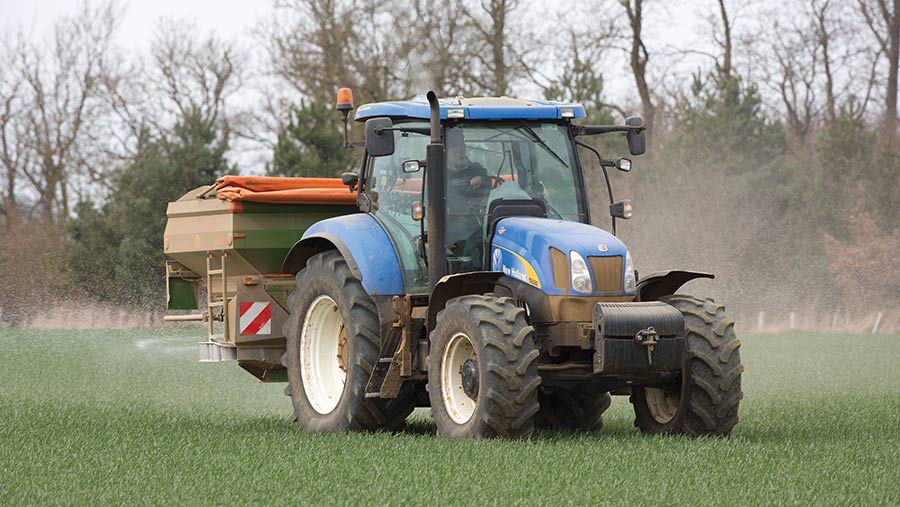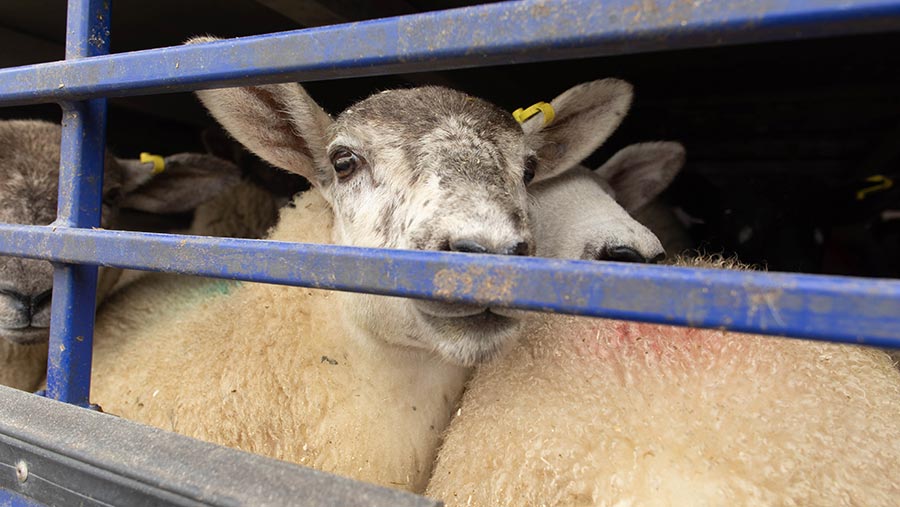Solid urea and live export bans: Key points and have your say
Next week sees the culmination of two important government consultations which could both have serious implications for farmers.
One covers solid urea, with the government seemingly intent on banning it as it strives to meet its clean air targets.
The other deals with animal transport, including plans to ban the export of live animals for slaughter.
There is still time to respond, so what’s on the table, what are the key points farmers can make, and how can they get their voices heard?
See also: What a ban on solid urea could mean for farming
Consultation on reducing ammonia emissions from solid urea fertilisers

© Tim Scrivener
What does the consultation say?
According to Defra, 87% of the country’s ammonia emissions come from agriculture, with 18% attributed to inorganic fertiliser and 8% blamed on urea.
These emissions combine with nitrogen oxide and sulphur dioxide to form particles which are damaging to human health.
In order to achieve a 16% ammonia reduction target by 2030, and so save on health budgets, Defra is suggesting three options for England:
- A ban on the sale and use of solid urea
- A requirement to use urease inhibitors in solid urea
- Allowing spreading only between 15 January and 31 March
Despite having the highest cost to farming, at about £125m by 2030 mainly due to increased use of ammonium nitrate (AN), Defra’s “preferred option” is an outright ban.
What are the key points for farmers to make?
- Based on Defra’s own figures, a ban on solid urea is not the most cost-effective option. It would cost the industry £125m to deliver £968m in public health gains, while making urease inhibitors compulsory would cost just £66m to deliver benefits of £885m.
- Banning solid urea will increase AN use, which can mean more nitrate leaching and increased greenhouse gas emissions.
- Banning solid urea will also mean less competition for AN, leading to higher prices.
- Storing AN is more dangerous than solid urea.
- Denying English growers solid urea would distort competition within the UK market, and make them less competitive in the world market.
- Why not wait until the newly established Nutrient Management Expert Group has submitted its impact assessment next year?
How can farmers have their say?
The main farming unions are poised to make their submissions, but individual voices carry just as much weight. Farmers can still take part by visiting the consultation document online and filling in the online survey.
See also: Defra drops livestock transport bombshell
Consultation on improvements to animal welfare in transport

© Tim Scrivener
What does the consultation say?
To meet the Conservatives’ 2019 manifesto commitment, the consultation suggests a ban on live animal exports from England and Wales if the animal is going direct to slaughter, or for further fattening and slaughter within six months.
This also covers animals from Scotland or Northern Ireland which might travel through England or Wales. Breeding animals and day-old chicks are exempt.
The consultation recommends much shorter journey times. Currently livestock can move for up to 28 hours with a one hour mid-journey break, followed by a 24-hour rest period.
The proposal suggests limiting pig journeys to 18 hours, sheep and cattle to 21 hours, and cattle under nine months to just nine hours.
Pigs and sheep could not then move again for 48 hours, while cattle would have a seven-day rest period.
Defra also proposes to ban all journeys if the outside temperature is either above 30C or below 5C, unless the lorry is able to regulate the internal temperature to this range. A maximum of 25C is proposed for poultry.
It also suggests new minimum headroom allowances and a ban on sea journeys if the wind speed is above Force 6.
What are the key points for farmers to make?
- A total ban on exports for slaughter and fattening animals would remove vital competition from the market, leading to lower prices.
- Journeys to abattoirs in northern Europe are often shorter than journeys within the UK.
- A transport assurance scheme could ensure higher welfare standards without an outright ban.
- Including the time spent at marts or in lairage should not count as part of a single journey.
- Imposing temperature limits of 5-30C, when the same livestock may exist happily in sub-zero temperatures on farm, is illogical.
- The cost of retrofitting lorries to meet these limits would be prohibitive, so the meat supply chain would shut down during cold spells.
- Headroom is not a welfare issue, but increasing it would mean fewer animals in a lorry, leading to extra journeys and higher cost.
How can farmers have their say?
Check out the consultation online (PDF) and complete the online survey
